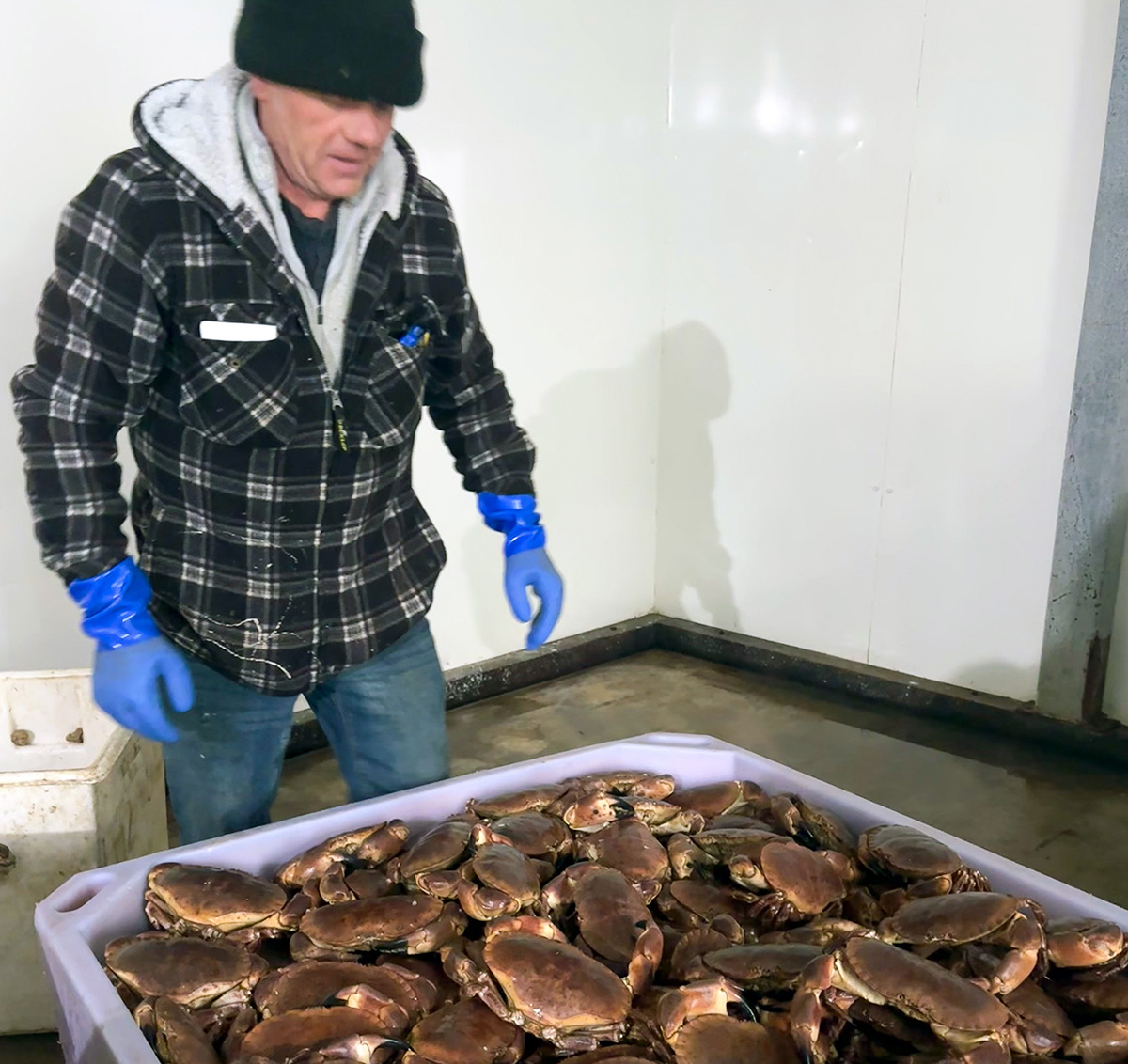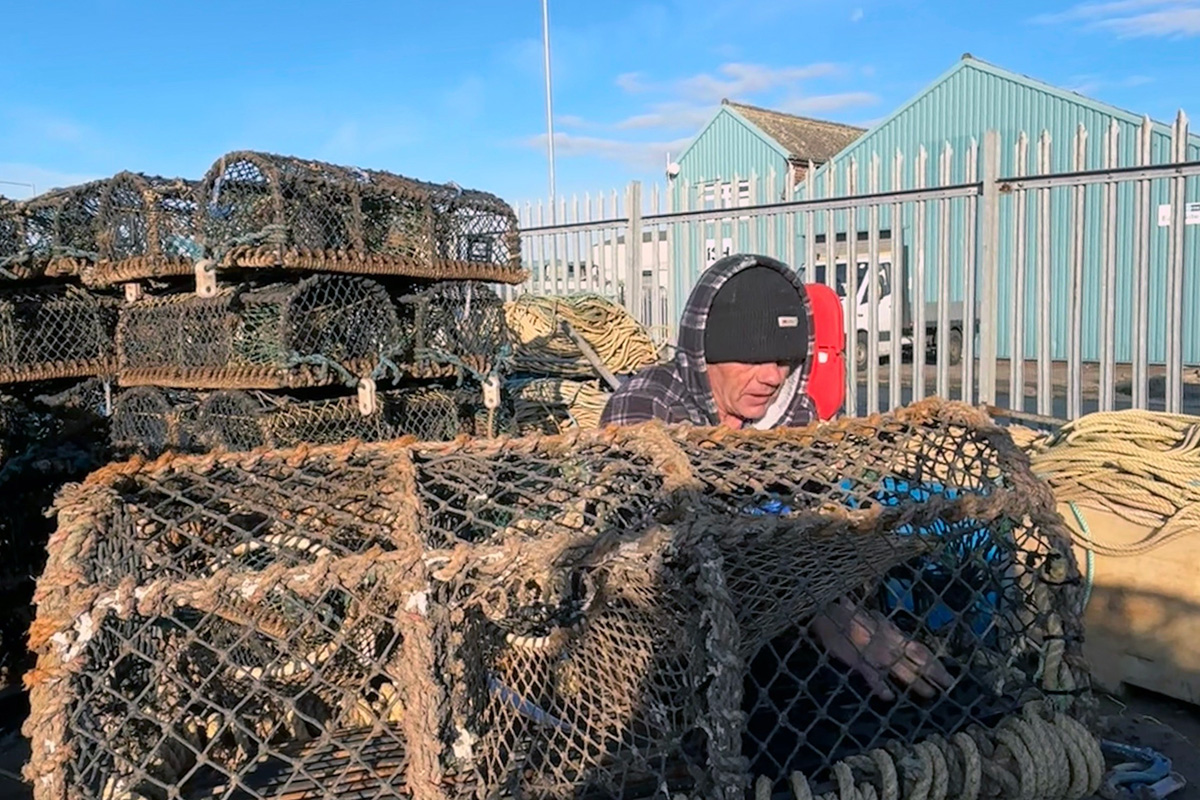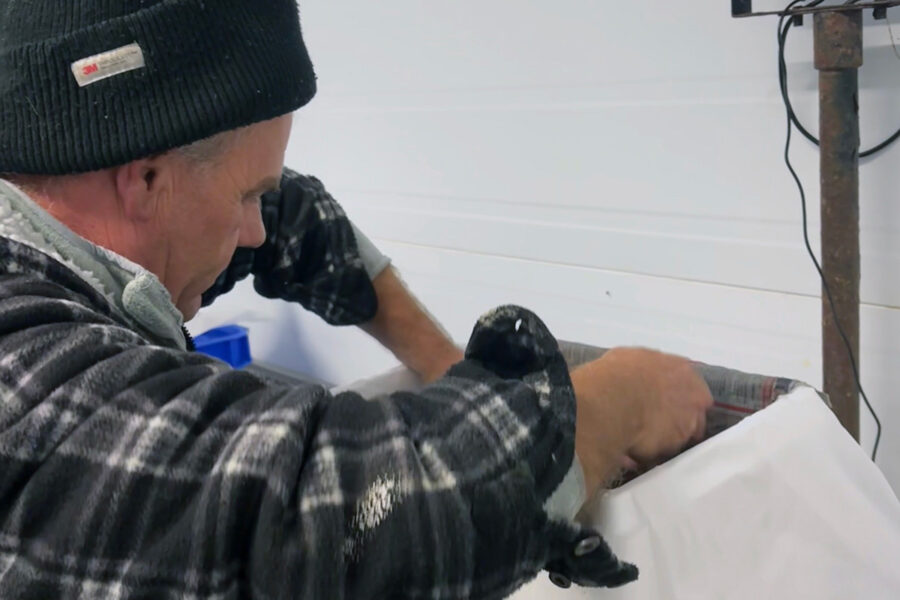“It started out with just me and my dad,” Darren Kenyon, director and co-founder of Grimsby-based Fastline Shellfish Ltd, told Fishing News.
“My dad was a fisherman all his life. He used to be on the big Ross trawlers out of Grimsby. Then he got himself a small boat, and we began from there. It was a little 15-footer, and that’s how it all started.”
For Darren, the journey began when he was just 13 years of age – and he says there wasn’t ever any question of not following his father into the industry.
“We built up Fastline, the business, and all the gear. When the fishing became difficult, and we weren’t allowed to catch anything, we moved into shellfish – and that’s when we developed Fastline Shellfish Ltd. We’ve been going for about 15 years now.”
Today, Fastline Shellfish processes its own catch, selling a range of products to both wholesale and retail markets, including live crab, cooked and dressed crab, crab claws, live lobster, cooked lobster and whelks.
The business operates two vessels, the Sweet Water of Newlyn PZ 685, a 10m potter built in 1982, and the 12m trawler Weston Bay GY 123.
“We fish now just for shellfish – crab, lobster and whelk, so we’re also converting the Weston Bay back to fish for shellfish. We’ve just come out of a big refit on it. My son might be going back in it, but we’ll see how that goes.”

The company now employs 15 members of staff, and processes and sells a range of products, including crab, lobster and whelks.
After a career at sea, Darren’s ‘typical day’ is now mainly spent ashore. “I don’t go to sea much these days, I’m trying to get one of the lads to work my boat now. I certainly don’t want to go this time of the year! Next year, I might just get myself a little boat for some lining – just to catch a bit of fish. That’s the plan.”
However, coming ashore doesn’t mean Darren is any less busy. “There’s always something different to do. It just depends on what’s happening. Things can change really quickly. These days I am mostly running about after the boats – repairing them, landing them – there’s always something happening.
“Today we’re sorting through the pots and all the gear, just getting it ready for the season. At the moment we mostly spend all day doing pots – certainly while it’s bad weather.
“Currently, we’ve got one boat fishing all the time, and at the moment the factory is closed for a refit – which is something we do every year. Whilst the factory is being refitted, we sell to other people, sending to other wholesalers.
“These days I don’t really have a lot to do with the factory, but now and again I’ll go in there if they’re short-staffed. I’ve done a few years in the factory – but I try not to go in there so much now.
“Other parts of my day could see me mending gear, or I could be in the lobster tanks, cleaning them, and also preparing orders and serving customers.”

Darren checking over his pots. “I’ve certainly seen a lot of change over the years,” he said. “At this moment in time, the industry is in a bad situation with everything. I feel like we’re just going through the motions waiting for things to get better – but I haven’t seen anything get better over the last 10 years.”
The company now employs 15 members of staff, but very much remains a family business. “My son-in-law runs the shop, and my daughter and my wife are in the factory – they run things in there. We’ve had the same staff for about four to five years. We’ve managed to keep the same people, which is very good – and everybody knows what they’re doing.”
One aspect that Darren doesn’t get involved in is the administrative side of the business. “There’s no paperwork for me. I wasn’t very good at reading and writing. I left school when I was a young lad and didn’t go back – but I’ve managed to get through life and build a good business. Reading and writing never really slowed me down – and I didn’t need it when I was at sea.”
A typical day for Darren ends whenever the vessels return to Grimsby with the day’s catch. “I might go home, but then I’ll come back to land the boats. We put everything into the chiller, and then we’re done. And that will be the last of our day. That could be any time from 6pm to maybe 10pm or 11pm. It all depends on the tide.
“Whatever is landed that evening will go through the process in the factory straightaway the next morning. We have a rough idea of what we’re going to sell for the day, so we try to cook to that figure. If we get busier, obviously we can carry on cooking.”
Although proud of the business he has built, Darren admits that the changing environment of a shrinking hospitality sector, more industry regulation, vessels and licences depreciating in value, the ML5 debacle, and spatial squeeze – particularly from wind farms – are all having an impact.
“The trade seems to be the same that we’ve had for years. We have a nice little business, and we’ve built it up over the years – but there are pressures.
“I used to love the job, but the last couple of years it feels like everything is against you – at the minute it’s just a battle.”
This story was taken from the latest issue of Fishing News. For more up-to-date and in-depth reports on the UK and Irish commercial fishing sector, subscribe to Fishing News here or buy the latest single issue for just £3.30 here.
Sign up to Fishing News’ FREE e-newsletter here.








